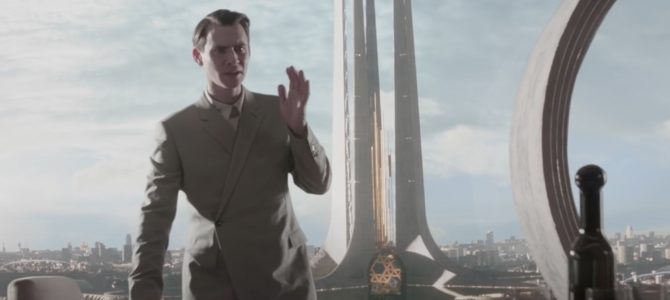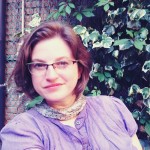
When Alduous Huxley wrote “Brave New World” in 1931, he was concerned about creeping totalitarianism and what that meant for the decline of individualism. While in his lifetime this fear primarily manifested in anxiety over the spread of communism, Huxley was clear that democracy would not immunize the West from these concerns.
The book has stayed relevant, and NBC’s new version of “Brave New World,” streaming on Peacock, gives voice to the decline of individualism under the guise of increasing happiness. This is exactly what Huxley was talking about.
“Brave New World” tells the story of a perfect society in which each person is genetically engineered to be happy with his designation in life. Each person’s intentional genetic composition determines his place and function in society, and their post-gestation conditioning makes them happy with it.
There is no deviation. Alphas are in charge, and betas serve the alphas as helpmeets. Beneath them, gammas serve both, and epsilons are basically a class of enslaved persons who partake in none of the joys of life and clean up after their superiors.
Speaking to Mike Wallace in 1958, Huxley discussed the main existential threats of their time—communism and overpopulation. His remarks indicate, however, that he would not have been surprised to find the major threats to the West, democracy, and the individual were coming from within. Technology, pharmaceutical drugs, and a penchant for incessant organization were the primary culprits, in Huxley’s way of thinking.
“We mustn’t be caught by surprise,” Huxley told Wallace, “by our own advancing technology.” He said that while “all technology is itself morally neutral,” the dictators of the future will realize that “if you want to preserve your power indefinitely you have to get the consent of the ruled. Partly by drugs… partly by these new techniques of propaganda… by bypassing the rational side of man and appealing to his subconscious and his deeper emotions, and his physiology… making him actually love his slavery.”
“This is the danger, “ Huxley went on to say, “that in some ways people might be happy under the new regime. But they will be happy in a situation where they oughtn’t be happy.”
Here is where we find the city of New London in Peacock’s rendition of “Brave New World.” New London is set up to be the ideal environment. The only emotion is happiness. Yet there are no mothers or fathers. People are grown in pods, hooked on mind- and heart-numbing drugs, designated to station different levels of society, each with different privileges. Sex is purely recreational, drugs are constantly consumed, work is in service to perpetuating society. The slogans are “everyone’s happy now,” and “everyone belongs to everyone else.”
In this, the series is true to the novel. Everyone is happy, and there are no lasting intimacies, not with mothers, fathers, or lovers. Society runs along smoothly in this shallow fashion.
That is, until the introduction of a disrupting agent—a savage from the old world, an outsider, a man named John (Alden Ehrenreich). Once he is introduced, with his unpredictable emotions, his yearning to be more than the sum of his parts, and inability to relinquish his individuality, society crumbles under the impact of just one free man. The utopian culture is unable to withstand the threat of individuality.
Even in its origins, the concept of utopia is a lie. Ever since Thomas More set forth his missive of the same name and “utopia” entered our lexicon, we have imagined we could make a perfect society. But the original utopia was a dystopia, because in creating perfection for the most people, in imagining what would be best for the group, the life of the individual becomes unbearable.
Huxley undoubtedly read More. For both men, individualism is at the heart of Western culture. It comes with independence, free thought, freedoms of expression, and holds the individual to account for his own life and actions.
In New London, every perfection belies the fact that these people have no idea what perfection looks like, and nobody even knows what the goals are. These are lessons we are still learning, as each consecutive politician pontificates his suppositions for an ideal world. We ignore and dismiss the individual at our own peril.
This new telling of Huxley’s novel shows just how clearly perplexed we are about what it means to be human. Beta Lenina Crowne (Jessica Brown Findlay) finds freedom in intimacy, and is vilified for it. There can be freedom in limitations, not those imposed from without but that come from our humanity within. Like Lenina, we seek safety, but we crave danger. We want to avoid difficult feelings and suffering, but without those we do not know true joy.
In the introduction to CBS’s dramatization of “Brave New World,” read by the author and broadcast in 1956, Huxley said the work was “a study of the future as it may be unless we are extremely careful. It depicts a society in which man has replaced nature by science, morality by drugs, individuality by total conformity. It is a hideous prospect, yet we seem determined to follow this path of self-destruction. But Brave New World need not be our future. The choice after all is in our own hands.”
Huxley took his title from Shakespeare’s “The Tempest,” when Miranda, kept isolated by her father Prospero, says, “How beauteous mankind is! O brave new world / That has such people in’t!” Poetry, art, love, debate, and free inquiry are just a few of the necessary and human things missing from the society of “Brave New World.”
In the 1956 version, John the savage says, “I like the inconvenience… but I don’t want comfort, I want God. I want poetry, I want real danger, I want freedom. I want goodness. I want sin.” The director, an Alpha, notes in reply, “You’re claiming the right to be unhappy.”
The new series delves deep into this concept, and sadness is one of the first emotions that those who have been conditioned to be perfectly happy begin to experience outside of their genetic determinism. In the final episode, the question is asked, “Do you want to be happy, or do you want to be free?”
Huxley would choose freedom. More would also. I believe the creators of Peacock’s “Brave New World,” Grant Morrison, Brian Taylor, David Wiener, would also choose freedom. What would you choose? Are you sure?









